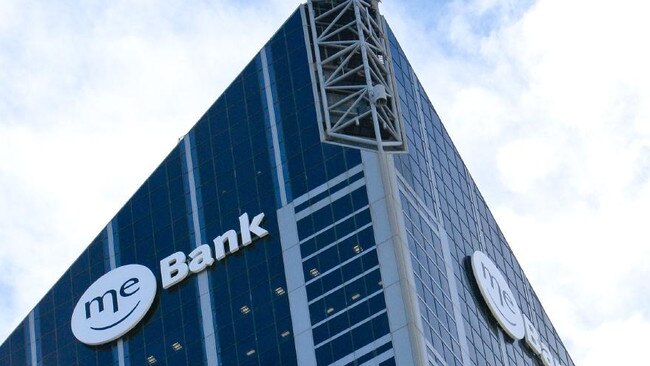ME Bank up for grabs

ME Bank is believed to be in informal talks with a private-equity backed consortium of investors about a potential sale of the industry super fund-owned lender that is estimated to be worth at least $1.1bn.
It is understood that the consortium involved has backing from an industry executive linked to a neobank and is thought to be offering a price around its book value, estimated to be between $1.1bn and $1.5bn.
Sources say that the consortium believes ME Bank could be taken down the financial technology business route, with low overheads.
This would be without suffering from the funding constraints that have plagued some junior banks and contributed to the demise of Australian fin-tech Xinja late last year.
However, market experts are sceptical about a private equity bid, given that industry regulators would not allow such a group to own more than 15 per cent of a licensed bank.
Major traditional banks have also put forward offers below ME’s book value, say sources, with most listed industry participants currently trading below their book values on the Australian Securities Exchange.
The approaches follow the departure of outgoing boss Jamie McPhee last year, after speculation started mounting that a sale of the lender could be on the agenda, with some shareholders eager to embark on an exit.
Mr McPhee had run the bank for more than 10 years and his exit came after the bank was entangled in controversy over abrupt changes to mortgage redraw facilities during the COVID-19 crisis, although he said at the time his departure was not related to the controversy.
It is understood that Mr McPhee is not involved in the latest consortium approach.
ME Bank is owned by 26 industry super funds, including AustralianSuper and Hesta, and was founded in 1994 with the intent of providing low-cost mortgages and loans to industry super members.
It has faced strong competition from larger banks, as it wrestles with funding constraints and a high-cost broker distribution model.
Although the bank is profitable, with its last reported annual net profit at $80.8m, the understanding is that at least one superannuation fund is eager for a sale.
The bank has not paid a dividend to its owners.
It is understood that at least some of ME Bank’s board members support a sale, although opinion is divided as to whether the buyer should be another bank or private equity.
The challenge for Australian listed banks when it comes to buying ME is that with most trading at below their net asset value themselves, a deal remains uneconomical unless they can secure it at a major discount.
Market analysts say that buying the Melbourne-based ME Bank at book value would not make economic sense for a competitor.
The bank, now run by its former chief financial officer Adam Crane, is understood to have grown its customer numbers from 234,000 to 542,000 and its assets by 50 per cent to $30bn.
Market experts add that any acquisition from a neobank would likely involve an offshore operator, given that most in Australia would not be large enough to fund a transaction, unless the party secured support from ME’s existing super fund investors.



To join the conversation, please log in. Don't have an account? Register
Join the conversation, you are commenting as Logout